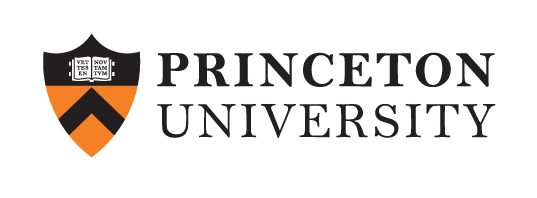Organization
Journal Publications
Productivity and Organization in Portuguese Firms
Journal of Political Economy, 2020, 128(11): 4211-4257
Abstract: Using employer-employee matched and firm production quantity and input data for Portuguese firms, we study the endogenous response of productivity to firm reorganizations as measured by changes in the number of management layers. We show that, as a result of an exogenous demand or productivity shock that makes the firm reorganize and add a management layer, quantity-based productivity increases by about 6%, while revenue-based productivity drops by around 3%. Such a reorganization makes the firm more productive but also increases the quantity produced to an extent that lowers the price charged by the firm and, as a result, its revenue-based productivity as well.
The Anatomy of French Production Hierarchies
Journal of Political Economy, 2015, 123(4): 809-852
Abstract: We study the internal organization of French manufacturing firms. We divide the employees of each firm into “layers” using occupational categories. Layers are hierarchical in that the typical worker in a higher layer earns more, and the typical firm occupies less of them. The probability of adding/dropping a layer is positively/negatively correlated with value added. Reorganization, through changes in layers, is essential to understanding how firms grow. firms that expand substantially add layers and pay lower average wages in all preexisting layers. In contrast, firms that expand little and do not reorganize pay higher average wages in all preexisting layers.
The Impact of Trade on Organization and Productivity
Quarterly Journal of Economics, 2012, 127(3): 1393-1467
Abstract: A firm’s productivity depends on how production is organized. To understand this relationship we develop a theory of an economy where firms with heterogeneous demands use labor and knowledge to produce. Entrepreneurs decide the number of layers of management and the knowledge and span of control of each agent. As a result, in the theory, heterogeneity in demand leads to heterogeneity in productivity and other firms’ outcomes. We use the theory to analyze the impact of international trade on organization and calibrate the model to the U.S. economy. Our results indicate that, as a result of a bilateral trade liberalization, firms that export will increase the number of layers of management. The new organization of the average exporter results in higher productivity, although the responses of productivity are heterogeneous across these firms. Liberalizing trade from autarky to the level of openness in 2002 results in a 1% increase in productivity for the marginal exporter and a 1.8% increase in its revenue productivity. Endogenous organization increases the gains from trade by 41% relative to standard models.
Organization and Inequality in a Knowledge Economy
Quarterly Journal of Economics, 2006, 121(4): 1383-1435
Abstract: We present an equilibrium theory of the organization of work in an economy where knowledge is an essential input in production and agents are heterogeneous in skill. Agents organize production by matching with others in knowledge hierarchies designed to use and communicate their knowledge efficiently. Relative to autarky, organization leads to larger cross-sectional differences in knowledge and wages: low skill workers learn and earn relatively less. We show that improvements in the technology to acquire knowledge lead to opposite implications on wage inequality and organization than reductions in communication costs.
Abstract: We use a simplified version of Garicano and Rossi-Hansberg (2005) to understand the impact of improvements in communications technology at the turn of the twentieth century on wages and organization. Improvements in communication technology allow individuals of different skills to abandon self-employment and form teams with each other. In particular, they allow high-skill agents to leverage their knowledge by specializing in the hardest tasks and hiring lowskill agents to do the routine tasks. Organization then exploits the complementarities between individual skills, which in turn affects the distribution of earnings.
Offshoring in a Knowledge Economy
Quarterly Journal of Economics, 2006, 121(1): 31-77
Abstract: How does the formation of cross-country teams affect the organization of work and the structure of wages? To study this question, we propose a theory of the assignment of heterogeneous agents into hierarchical teams, where less skilled agents specialize in production and more skilled agents specialize in problem solving. We first analyze the properties of the competitive equilibrium of the model in a closed economy, and show that the model has a unique and efficient solution. We then study the equilibrium of a two-country model (North and South), where countries differ in their distributions of ability, and in which agents in different countries can join together in teams. We refer to this type of integration as globalization. Globalization leads to better matches for all southern workers but only for the best northern workers. As a result, we show that globalization increases wage inequality among nonmanagers in the South, but not necessarily in the North. We also study how globalization affects the size distribution of firms and the patterns of consumption and trade in the global economy.
Inequality and the Organization of Knowledge
American Economic Review P&P, 2004, 94(2): 197-202
Abstract: Since the seminal work of Lawrence F. Katz and Kevin M. Murphy (1992), the study of wage inequality has taken as its starting point a neoclassical constant-elasticity-of-substitution production function using as inputs capital and low- and high-skill labor. This approach assumes that the organization of production is fixed and determined by a particular specification of technology, and it ignores both the source of the interaction between workers and the organizational aspects of this interaction. These shortcomings are particularly important in light of growing empirical evidence that points, first, to the importance of decreases in the cost of processing and communicating information and, second, to the complementarity between organizational change and adjustments in the distribution of wages (e.g., Timothy F. Bresnahan et al., 2002). This paper argues that theories that seek to guide empirical research on these areas must put knowledge and information at the center of the analysis of organizations and link the organizational structure with aggregate variables via equilibrium frameworks.
Books, Chapters, and Surveys
